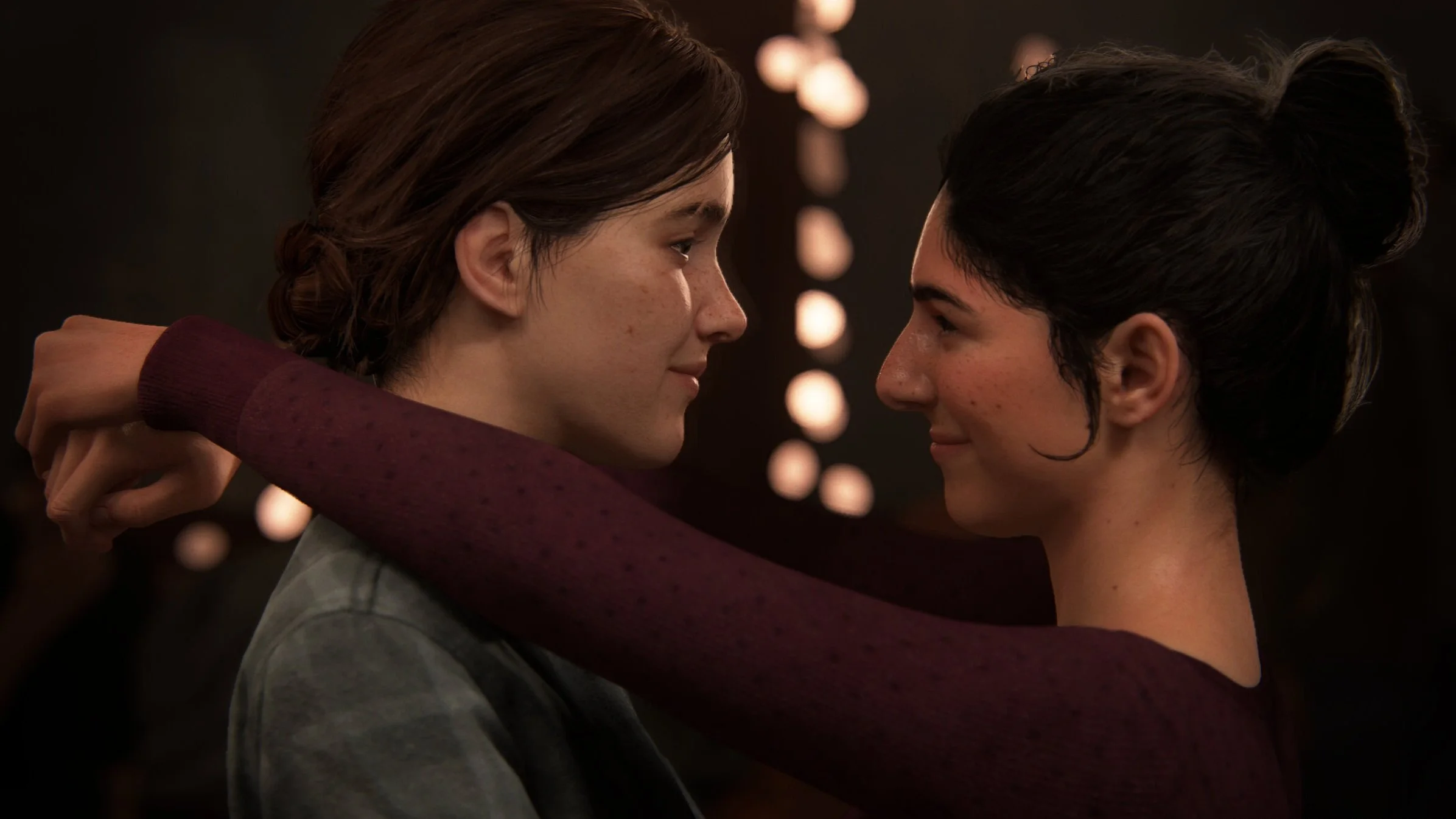PRIDE 2020: With Diversity, Less is Never More
By time the music started we were in disbelief. We were watching my black dwarf warrior initiate sex with an olive-skinned elf assassin. For me and my equally sheltered roommate, 2009’s Dragon Age: Origins showed us our first gay relationship that wasn’t the butt of some joke or a caricature. We were college freshmen being exposed to fresh ideas outside the walls of the conservative Christian private schools we’d grown in. And after the shock and surprise at what we were watching faded away though, it felt normal. Benign.
Dragon Age 2 might be the most Bioware-y Bioware game. But even then fans collectively decided “We want more gay stuff!”
The value and importance of that moment remains for me. But looking back now, I realise that what followed for years, asking to simply ‘see’ queer characters in our games, wasn’t enough. On top of that, saying ‘we need diversity in games’ was nebulous and didn’t move the needle past a certain point. When you begin to account for past progress you quickly understand that expectations should shift. We should expect better representation as we see more representation. It’s a challenge for stigma to exist when what is forbidden becomes familiar. When what was uncommon becomes normalised, you have to move onto the next thing.
In the case of games (and most media) the next frontier must be intersectional identities. Games have unique opportunities to interrogate identities. Games offer a unique and vibrant space for exploring queerness. For example, throw off gender norms and invite options for character creation and player expression. Allow players to experiment outside monogamy and interrogate their own feelings on relationships outside of heteronormativity. Invite players to do these things within racial identities of their choice. Transpose real-world experiences onto fictional ones and give players a chance to see perspectives they may rarely see otherwise.
While each update to The Sims 4 adds more diversity and options, the community will always insist on making nightmare versions of Goku.
But to do this, games have to fix another problem. The development scene must expand. Development teams have to make an internal diversity push, to seek out and hire people that reflect more than an engineering university’s computer-science department. This takes time, and until larger studios learn to expand their job pool outside their friends and former colleges, indies have had to pick up the slack. A lot of incredible diverse work is already being done on itch.io. Which is a great place that larger companies should look to recruit from.
Another space that developers can gather ideas and talent from is their own communities. As soon as the first piece of fiction was written, someone started thinking up their own fanfiction to complement it. Modding communities, original character and alternate universe writings, fan art and one true pairing message boards have been around since before the internet even became widespread. Fans have been finding ways to invite diversity and queerness into hetero and cis-gendered works for years. Even with Dragon Age Origins back in 2009, mods gave players options to have more same-sex pairings and even gay marriages. Fandoms can help a game grow a following beyond the creators’ initial intent, and that’s beautiful. And it’s incumbent on developers to not only acknowledge that community support, but embrace it.
Currently, most large to medium-sized games are using diversity as a bonus on the back of the box and a marketing bullet point, not something they embrace as a core value. For many games, the peak of inclusivity is seen as having several characters whos main trait is their romance options, are they gay, bi, trans or occasionally ace? But queer identities are not defined by solely their relationship status, there are so many other characteristics. I want to see games present queer friendships, found family and politics. There are opportunities here outside of ‘who’s hooking up with who’.
It is also worth remembering that games should approach allegory with caution. These metaphors often fail to live up to reality it wishes to comment on. Besides narratives don’t need to be abstracted into dwarves and elves, or some other fantasy race. We don’t need sexless aliens to comment on non-binary people when non-binary people exist. We don’t need orcs as a veil to comment on racism when we can just comment on racism. It’s tiring, limiting and often even offensive to use allegories, which are often based in the ideas Tolkien and Lovecraft. Developers need the courage to say what they want to say, but to do so, they need the staff and/or consultants that can speak to that lived experience.
Despite the Persona series being renowned for its eclectic character it has always struggled with any form queer representation.
I want games to be better. I know they can be. I know they can do more. To quote Heather Alexandra, “When we apply criticism to art, we enter a conversation.” Excusing these issues ends that conversation, and rejects the possibility that things could be different. Games can be transgressive and normalise what society has rebuked. Games can recontextualise the relationships we have with people who are different from us. Games can introduce people to new ideas and let them explore the experiences of others. But, for games to do that, they have to grow beyond having one or two generic gay characters. ‘Less is more’ or ‘I like diversity when it makes sense’ aren’t valid arguments when the straight white male default never has to justify itself. For there to be progress, we have to move the goalposts and stop settling for less. What was transgressive and revolutionary 10 or 5 years ago is pedestrian now. I invite you to challenge that. I invite you to start expecting more.





![Here's the Rundown of Everything (I mean EVERYTHING) at the PC Gaming Show [13/06/2020]](https://images.squarespace-cdn.com/content/v1/5caf2dea93a63238c9069ba4/1592255946601-K2MHPMOFJWLOKHEB7J9G/mafia.jpg)
![Here's the Rundown of Everything at Today's PlayStation 5 Reveal [11/06/2020]](https://images.squarespace-cdn.com/content/v1/5caf2dea93a63238c9069ba4/1591917661206-2OBZKVTB9HMDT6XBV0NT/ps5%2B2.jpg)


